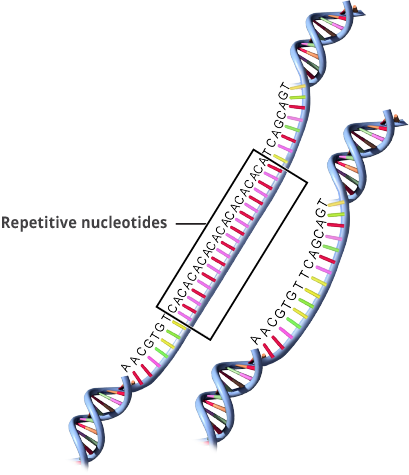
MSI can be detected following polymerase chain reaction (PCR) amplification of selected microsatellites using fluorescent primers and automated detection platforms. Testing for MSI may also include immunohistochemistry (IHC) analysis for MMR proteins, and mutation detection in the MMR genes. Patients with inherited mutations in the mismatch repair (MMR) genes MLH1, MSH2, MSH6, PMS2, or EpCAM are often found to have Lynch syndrome, which is responsible for 2% to 4% of CRC cases. Acquired MMR defects are reported in approximately 19% of CRC cases, and some researchers have reported epigenetic silencing of the MLH1 gene promoter in as many as 52% of colon tumors.
The DNA mismatch repair (MMR) status of CRC may have predictive value in some clinical settings. Testing of CRC for MMR has been recommended for all patients with CRC as a workup test to evaluate for possible Lynch syndrome. Recent molecular biomarker data have shown the importance of microsatellite instability (MSI) testing, a marker of deficient mismatch repair (dMMR). Studies have shown that in patients with Stage II CRC, high MSI status is associated with a more favorable outcome. In addition, MSI status may play a role in the selection of patients for immunotherapy.
